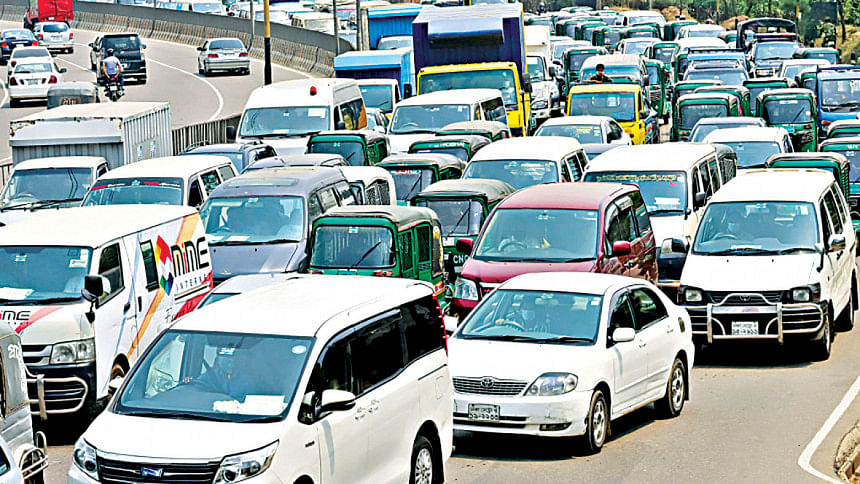World Car-free Day: Decarbonise transport for climate justice

As the climate crisis grows ever more severe and destructive, we need strong actions to ensure climate justice. But instead, why do we continue to provide subsidies to fossil fuel use? These subsidies reached a new record in 2022, at $13 million a minute, according to the International Monetary Fund. Yet, the burning of fossil fuels is the main cause behind the climate crisis.
Subsidising some of the world's wealthiest (and most damaging) corporations, while the poorest suffer the most from the climate crisis, is the epitome of climate injustice.
We absolutely must turn this situation around at the earliest. We must not accept paltry attempts at reducing greenhouse gas emissions while such subsidies continue. This includes, but cannot be limited to, demanding compensation for the damage the climate crisis is causing; it must include halting such subsidies so that we can rein in the crisis before all hope of living on a habitable planet is lost.
In addition to stopping subsidies for fossil fuels, we must make serious inroads in decarbonising transport. And this won't happen through miracle technology, electric vehicles, or the chimaera of clean fuels. It would be insanely expensive to convert the world's fleet of automobiles to electric. And, in any case, much of our electricity still comes from burning coal. Supposedly "clean" vehicles still need to be manufactured using polluting processes. Pouring money into methods that allow the wealthy to continue their wasteful lifestyle while the poor struggle to fulfil their basic needs is one example of economic injustice.
What would be more just – and what happens to be a great solution for decarbonising transport – is enabling and promoting walking, cycling, and pedal-powered rickshaws. If we reduced rather than increased the need for travel by focusing on decentralisation within cities as well as across the country, we could dramatically increase the percentage of trips that can be made on foot or by bicycle. We could further shift people's travel modes by rewarding those that are gentle on the environment and cause no GHG emissions, while making it less attractive to burn fuel to move about. Many urban trips are already quite short, but our incentive system rewards rather than discourages pollution.
Would promoting walking and cycling mean abandoning modernity? Of course not. The cities with the highest percentage of trips by bicycle are in Scandinavia and western Europe – modern, cosmopolitan, desirable cities with high quality of life.
We have no choice but to make rapid and dramatic changes in the way we live. We cannot afford to do so through false promises of technological breakthroughs. We must overcome our obsession with the mobility of people and goods. By doing so, we could dramatically increase our quality of life: less congestion, less air pollution, fewer road crashes, more peace and quiet, stronger local economies, and more resilient and friendly communities.
This year, the Carfree Cities Alliance has declared the theme of World Car-free Day (September 22) to be "Justice in Motion." The theme refers to the many ways in which car-free cities promote climate, environmental, economic, health, spatial, and social justice. The very wealthy create the highest greenhouse gas emissions and pollution; they receive subsidies from the government in the form of road infrastructure; they occupy more space (including parking their cars for free, while vendors and beggars often must pay for the space they occupy); their vehicles pose the risk of injury or even death to others, as well as destroy the peace with their constant honking. Car-free cities would dramatically increase social equality while reducing many other problems related to injustice in our cities and our lives.
While seeking to decarbonise transport and dramatically reduce the threat of the climate crisis, how about also making our cities more habitable and more just?
Debra Efroymson is executive director of the Institute of Wellbeing and is active in the international Carfree Cities Alliance.
Views expressed in this article are the author's own.
Follow The Daily Star Opinion on Facebook for the latest opinions, commentaries and analyses by experts and professionals. To contribute your article or letter to The Daily Star Opinion, see our guidelines for submission.

 For all latest news, follow The Daily Star's Google News channel.
For all latest news, follow The Daily Star's Google News channel. 








Comments